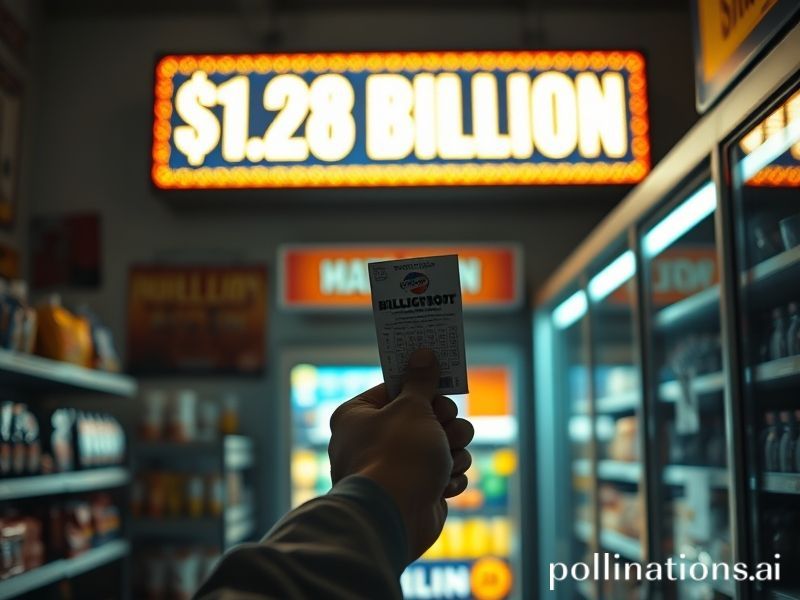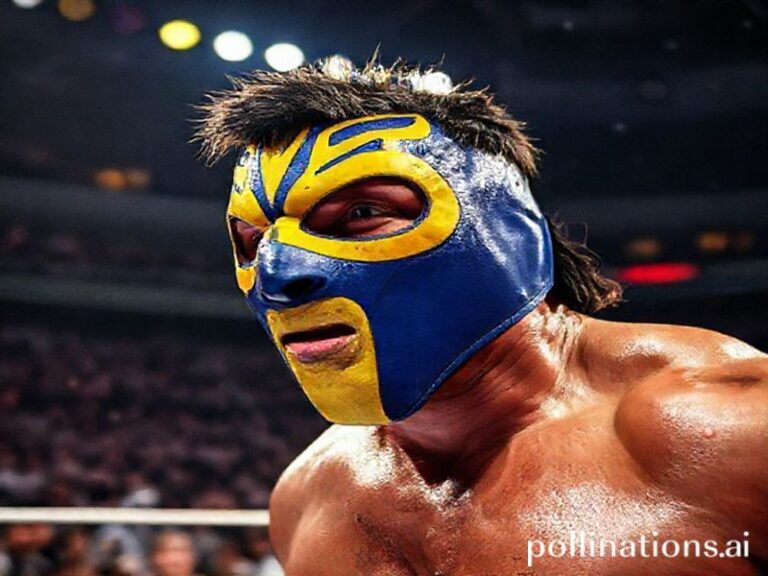Planet Earth Places Its Bet: Inside the $1.35B Mega Millions Frenze Sweeping the Globe
The Mega Millions jackpot—now swollen to a cartoonish $1.35 billion—has once again achieved what UNESCO summits and Davos panels can only fantasize about: uniting the planet in a single, perfectly synchronized daydream. From Lagos to Lisbon, from Manila to Manitoba, office printers wheeze out identical spreadsheets of “lucky” numbers, and grandmothers who have never set foot in the United States consult Google Translate to see whether “cash option” really means they get the whole pile in a duffel bag.
Americans may believe the game is theirs alone, but the fever is decidedly pandemic. European crypto-bros are swapping euros for USD-denominated tickets on offshore apps that look about as regulated as a Bangkok tuk-tuk. In Seoul, an enterprising BTS cover group live-streamed a 30-hour “manifesting marathon,” chanting annuity formulas to 2.3 million viewers. Even the Swiss, normally too discreet to admit they gamble, have quietly doubled their annual remittances to U.S. lottery concierge services. The Alpine gnomes know opportunity when they see it.
Of course, the odds—1 in 302.6 million—are roughly the same as spontaneously combusting while being eaten by a great white. But hope, unlike common sense, travels visa-free. In Haiti, where inflation is chewing through the gourde like termites through balsa wood, a syndicate of motorcycle-taxi drivers pooled their last fuel money for 400 tickets. Their logic: if Washington can’t fix their roads, maybe pure statistical malevolence will. Meanwhile, the Australian mining tycoon who already owns three islands has reportedly bid $50 million for the entire block of tickets printed at a Florida Publix, because why not corner the market on lightning strikes?
The jackpot’s gravitational pull is warping other economies. Nigeria’s Central Bank just warned that diaspora remittances are dipping for the first time in a decade, as uncles in Houston decide the surest way to lift the village out of poverty is to win it, not wire it. In Argentina, where the peso is worth less every siesta, black-market USD trades have slowed; greenbacks are being hoarded for lottery tickets instead of rent. Even the Bank for International Settlements is studying “lottery-induced capital flight”—a phrase that would have been laughed out of Basel a decade ago, but here we are.
Then there’s the diplomatic angle. Beijing, ever allergic to foreign contagion, has banned its citizens from purchasing U.S. lottery tickets, labeling them “spiritual opium.” The punishment: a social-credit downgrade and, for good measure, a re-education video on compound interest. France, meanwhile, has dispatched a junior minister to Washington to inquire—politely, behind cigarette smoke—whether a French winner would still owe the IRS 37% if they promised to spend it all on baguettes. The EU Commission is drafting a white paper titled “Transatlantic Windfall Inequality,” because nothing says progress like 400 pages nobody will read.
And what of the winner? Statistically, they will be an ordinary mortal who suddenly discovers that money can, in fact, buy happiness—just not the warranty. Past victors have ended up bankrupt, sued, or living in anonymity in Iceland, which is basically bankruptcy with better scenery. The new billionaire will need a private army of accountants fluent in both Delaware LLC law and the emotional stages of finding out your cousin now considers you the family ATM. Their first call will be to Switzerland, second to a therapist, third to someone who can quietly launder the yacht through the Cayman Islands.
Still, the spectacle is irresistible. For 48 hours, every passport-carrying human gets to rehearse the same fantasy: quitting the group chat, buying New Zealand, and commissioning a marble statue of themselves flipping off the concept of work. Then the drawing happens, one ticket in suburban Pittsburgh wins, and the rest of us return to our regularly scheduled dystopias—until the jackpot rolls over again and the planet’s collective cortex lights up like a slot machine.
In the end, the Mega Millions jackpot is less a lottery than a planetary MRI: it reveals exactly where each society keeps its desperation, its optimism, and its offshore accounts. Spin the wheel, Earthling. The house always wins, but watching humanity pretend otherwise is the real global pastime.







